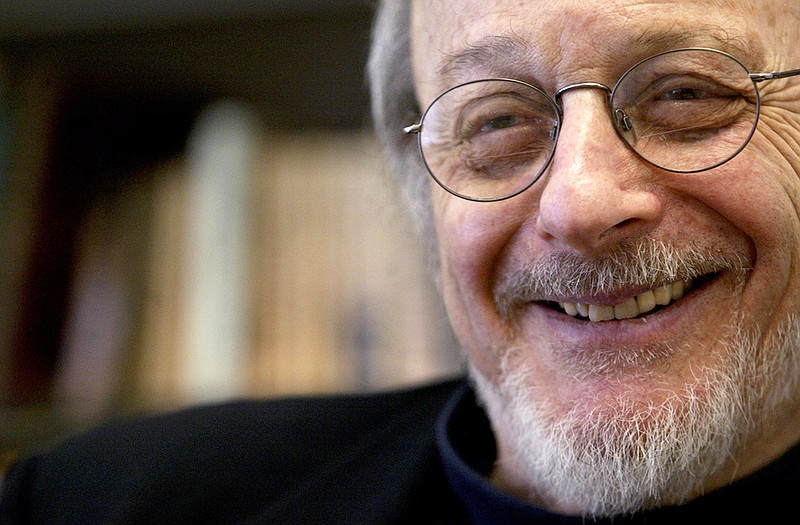NEW YORK (AP) - Few minds were as playful and as serious as E.L. Doctorow's.
Conjurer of old-time gangsters and ragtime stars. Commentator on wars and presidents and the laws of the land. Student of political and literary history and how they tell us who we are now.
Doctorow, who died Tuesday at age 84, was the rare American writer to move gracefully between lives as engaged citizen and solitary inventor.
"Underlying everything - the evocative flashes, the dogged working of language - is the writer's belief in the story as a system of knowledge," he wrote in the introduction to his essay collection "Creationists," published in 2006. "This belief is akin to the scientist's faith in the scientific method as a way to truth."
Doctorow was among the most honored authors of the past 40 years. His prizes included the National Humanities Medal, the National Book Critics Circle award and both competitive and honorary National Book Awards.
He forged his reputation around a series of novels - most set in and around New York City - that carried readers from the 1800s to modern times. Mixing fictional characters with historical figures, he looked back to the Civil War ("The March"), the post-Civil War era ("The Waterworks"), the turn of the 20th century (the million-selling "Ragtime"), the 1930s ("Billy Bathgate," "Loon Lake," "World's Fair") and the Cold War ("The Book of Daniel").
"I don't know what I set out to do," Doctorow told the Associated Press in 2006. "Someone pointed out to me a couple of years ago that you could line them up and in effect now with this book, 150 years of American history. ... And this was entirely unplanned."
A balding man with a soft goatee and impish expression, Doctorow was little known to the general public before age 40, but by late middle age was not just a popular author but a kind of wise man and liberal conscience. He might write an open letter to then-President George H.W. Bush and urge him not go to war against Iraq or, to some boos, criticize the second President Bush and second Iraq War in a commencement speech at Hofstra University on Long Island.
In 1992, as the first George Bush opposed Democrat Bill Clinton, Doctorow considered the role of chief executives in American culture.
"With each new president, the nation is conformed spiritually. He is the artificer of our malleable national soul," he wrote in the liberal weekly The Nation, for which he was a frequent contributor. "I would want a presidential temperament keen with a love of justice and with the capacity to recognize the honor of humbled and troubled people."
On Twitter, President Barack Obama praised Doctorow as "one of America's greatest novelists."
"His books taught me much," Obama wrote.
Doctorow taught creative writing at New York University and was an instructor at Yale University Drama School, Princeton University, Sarah Lawrence College and the University of California, Irvine. He married Helen Setzer in 1954. They had two daughters and a son.
Edgar Lawrence Doctorow was born Jan. 6, 1931, in New York, his early years remembered warmly in "World's Fair." His father, David Doctorow, ran a music store, and his mother, Rose Doctorow, was a pianist.
Named after Edgar Allan Poe, whom he praised and disparaged as "that strange genius of a hack writer," young Edgar Doctorow read widely and decided he would become an author at age 9.
"I began to ask two questions while I was reading a book that excited me," he recalled. "Not only what was going to happen next, but how is this done? How is it that these words on the page make me feel the way I'm feeling? This is the line of inquiry that I think happens in a child's mind, without him even knowing he has aspirations as a writer."
Doctorow graduated from the Bronx High School of Science and from Kenyon College in Gambier, Ohio. He attended graduate school in at Columbia University but left without completing a doctorate. He also served in the U.S. Army, stationed in Germany. In the 1950s, Doctorow worked as a script reader for Columbia Pictures, reading novels and summarizing them for possible film treatment. That job led him to his first novel, "Welcome to Hard Times," a Western published in 1960.

